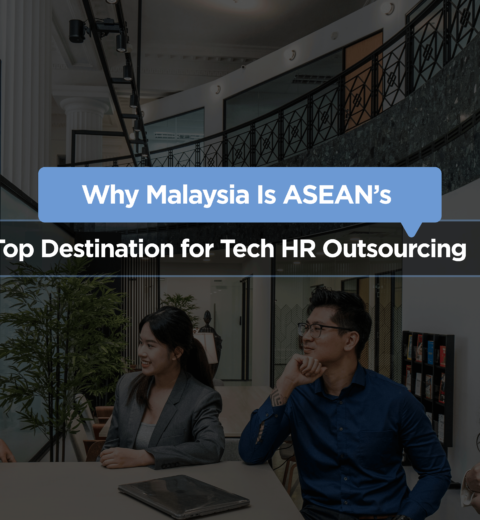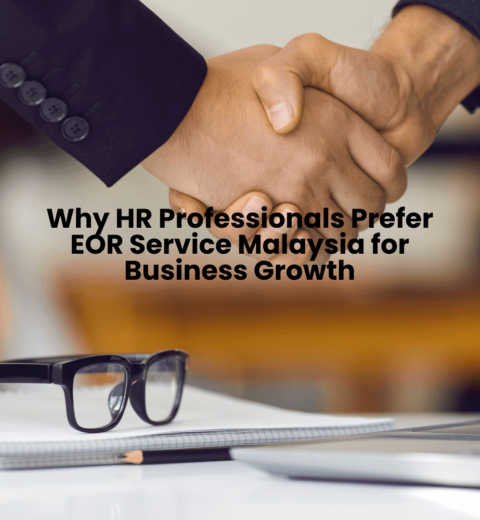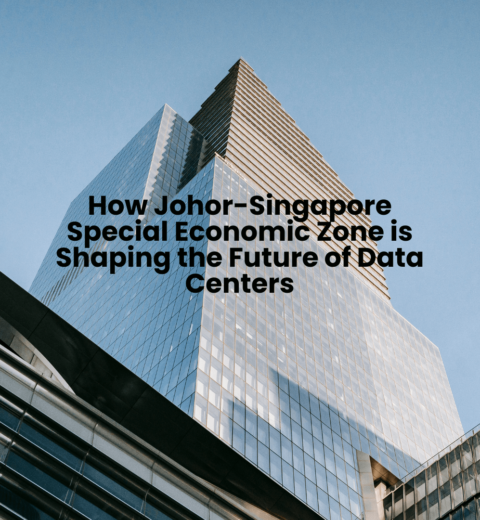
Malaysia and Singapore are working together to establish the Johor-Singapore Special Economic Zone (JS-SEZ) in southern Johor, with the goal of strengthening economic ties, boosting connectivity, and enhancing strategic partnerships between the two nations. According to a Singapore Business Federation (SBF) report, 93% of surveyed businesses see Johor as an attractive investment destination, with half already operating there. In the past two years alone, Johor has secured RM113.7 billion in investments and created 35,000 jobs, positioning itself as a key driver of Singapore’s competitiveness and appeal to global investors.
For businesses looking to expand in the region, the benefits of Johor Singapore SEZ are clear, it will foster bilateral trade, streamline the movement of goods and people, and strengthen cross-border collaboration. The initiative is set to boost the business ecosystem in both Singapore and Johor’s Iskandar Malaysia region, attracting fresh investments in high-potential sectors such as financial services, electronics, healthcare, and business-related services.
Benefits of Johor Singapore SEZ – What Businesses Need to Know
Malaysia and Singapore are collaborating to develop the Johor-Singapore Special Economic Zone (JS-SEZ) in southern Johor, with the aim of boosting economic ties, enhancing cross-border connectivity, and creating new business opportunities.
According to the Singapore Business Federation (SBF), 93% of businesses see Johor as an attractive investment destination, with 50% already operating there. Over the past two years, Johor has attracted RM113.7 billion in investments and created 35,000 jobs, strengthening Singapore’s competitiveness and appeal to global investors.
For companies planning regional expansion, the benefits of Johor Singapore SEZ are significant. The initiative will improve the movement of goods, services, and talent between both nations while fostering a vibrant business ecosystem. The SEZ targets high-growth sectors such as manufacturing, electronics, semiconductors, aerospace, healthcare, and technology services, supported by modern infrastructure and digital integration.
Key Economic Incentives and Opportunities – Johor Singapore SEZ
The JS-SEZ offers attractive tax incentives, including a 5% corporate tax rate for up to 15 years for companies in advanced industries such as AI and aerospace, and a 15% personal income tax rate for knowledge workers over a 10-year period. Additional perks include reduced entertainment duties to promote tourism and leisure, and support for renewable energy initiatives.
Johor is also leveraging AI to attract Singaporean companies, developing around 40–50 planned data centre projects, and establishing the Invest Malaysia Facilitation Centre to assist investors. Singapore, in turn, may introduce measures in its Budget 2025 to encourage joint investments and extend its Southeast Asia Manufacturing Alliance support to industries in the zone.
Enhanced Connectivity for Businesses and Talent
Improved cross-border movement is another major benefit of Johor Singapore SEZ. The Johor Bahru-Singapore Rapid Transit System (RTS) Link, set to begin passenger service by the end of 2026, will facilitate the movement of 10,000 people daily. QR code immigration clearance, upgraded customs facilities, and Vehicle Entry Permit systems will further streamline travel.
Talent attraction is also a focus, with Johor offering starting salaries for diploma and degree graduates between RM4,000 and RM5,000, nearly double the national average. With 100,000 skilled jobs planned, the SEZ is positioning itself as a hub for high-value employment.
Strategic Advantages of the Johor Singapore SEZ
Businesses can benefit from:
- Common cultural and legal frameworks between Singapore and Malaysia, making cross-border operations smoother.
- Lower operational costs in Johor while leveraging Singapore’s technology and innovation.
- A gateway to two markets, tapping into Johor’s land and resources alongside Singapore’s global trade networks.
- An integrated supply chain and transport infrastructure that boosts efficiency and productivity.
Hiring Across Borders: Key Challenges for Businesses
While the Johor-Singapore Special Economic Zone (JS-SEZ) opens doors for new opportunities, businesses expanding into the region must also navigate the realities of cross-border hiring. Differences in regulations, costs, and workforce expectations can create pain points that need careful planning. Some of the key challenges include:
- Regulatory Compliance & Dual Frameworks
Hiring across Malaysia and Singapore means adhering to two sets of labour laws, taxation policies, and employment standards. This creates complexity in payroll management, benefits administration, and statutory contributions such as EPF in Malaysia versus CPF in Singapore. - Salary & Cost Disparities
With Johor offering salaries of RM4,000–5,000 for graduates, nearly double Malaysia’s national average, companies may face rising wage costs and salary benchmarking challenges compared to Singaporean pay scales. - Talent Mobility & Retention
The SEZ promises smoother cross-border movement via the RTS Link and improved immigration systems. However, attracting and retaining talent across two jurisdictions requires competitive packages, career growth pathways, and strategies to prevent brain drain to higher-paying markets. - Digital HR & Cybersecurity Readiness
As the SEZ pushes for digital trade and integrated ecosystems, businesses need strong HR tech, payroll automation, and cybersecurity systems to manage a mobile workforce securely. - Administrative Overhead
Without an Employer of Record (EOR) or professional HR partner, companies may face delays in onboarding, compliance risks, and higher costs associated with establishing legal entities in both countries.
The Big Picture
The JS-SEZ is expected to mirror the rapid growth seen in global economic hubs like Shenzhen, transforming into a major ASEAN investment destination. With combined government support, tax incentives, and strategic infrastructure, the benefits of Johor Singapore SEZ extend far beyond cost savings, it represents a long-term growth opportunity for companies seeking a competitive edge in Southeast Asia.
While the Johor-Singapore Special Economic Zone (JS-SEZ) offers immense potential, businesses must also be prepared to address certain operational and strategic challenges to fully reap the benefits of Johor Singapore SEZ.
- Regulatory Compliance & Cross-Border Standardisation:
Companies must navigate both Malaysian and Singaporean regulatory frameworks, including trade policies, taxation, and employment laws. Understanding and aligning with both jurisdictions is critical for smooth, compliant operations.
- Talent Migration & Competition:
The SEZ’s competitive employment packages are expected to attract top talent from both sides of the border. This could lead to increased competition for skilled professionals, making it essential for businesses to implement strong talent retention strategies and continuous skills development programs. - Digital Readiness:
With the JS-SEZ’s focus on digital trade facilitation and integrated business systems, companies must invest in technology infrastructure and cybersecurity to remain competitive and take full advantage of the SEZ’s smart ecosystem.
Conclussion
The benefits of Johor Singapore SEZ make it a game-changer for companies aiming to expand into a high-growth, cost-efficient, and strategically connected market. From lower operational costs to improved cross-border trade and access to a skilled talent pool, the opportunities are vast for those who prepare early and strategically.
Ecosystem enablers like INFINITY8 can provide critical support by offering infrastructure, business services, and strategic guidance to navigate the complexities of cross-border operations. For businesses planning to leverage the JS-SEZ, having the right partners and resources in place will be key to maximising growth, ensuring compliance, and minimising risks in this new economic landscape.




